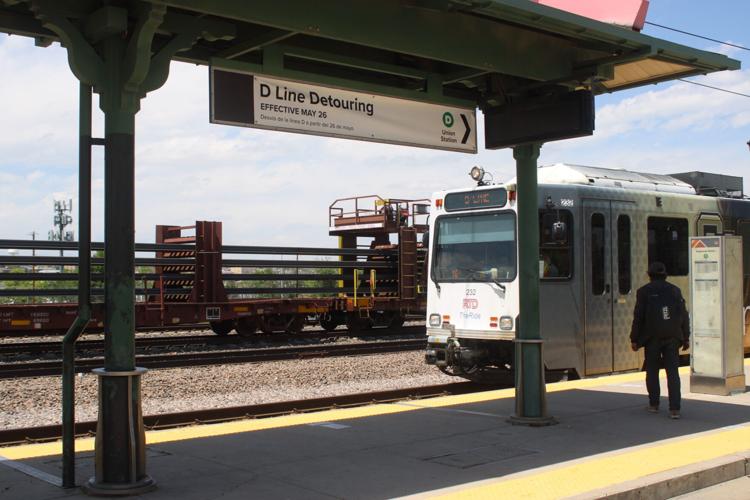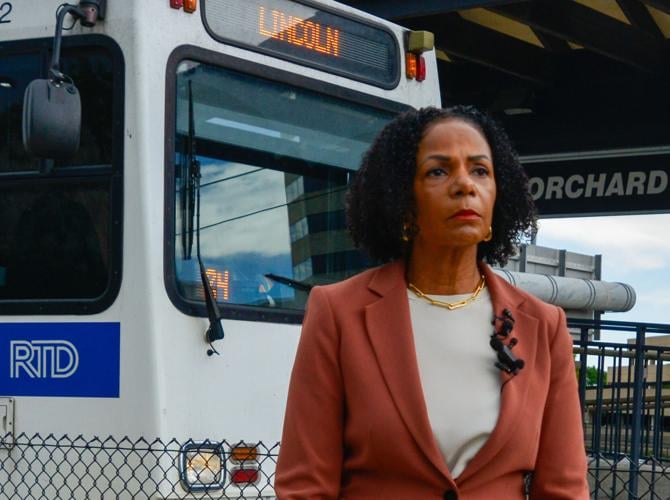RTD Board of Directors seeks to extend TABOR exemptions
Bypassing TABOR is on the agenda for the Regional Transportation District via a resolution adopted by the transit system’s board of directors.
The board submitted a ballot question that would free RTD from future revenue limitations of the Taxpayer’s Bill of Rights — again.
If voters approve in November, the proposed ballot question would “extend the current voter authorization for RTD to retain and spend all revenue without further voter approval,” officials said in a news release.
RTD officials said it has spent $5.5 billion on rail projects since 2004. For every $1 invested in transit infrastructure, RTD said there is a $4 dollar return over 20 years. RTD also said it has created 15,000 direct full-time jobs since 2005.
“Putting the TABOR question to qualified voters makes sense. Agency polling indicated a strong level of support, with 68% of respondents agreeing that they would support a ballot measure on this topic,” said Erik Davidson, chair of the RTD Board of Directors, in a news release. “If approved, such a measure would enable RTD to retain revenue needed to continue providing the public with a level of service it expects to receive.”
This is not the first time RTD has asked for a TABOR bypass. Previous authorizations to bypass revenue and spending limits occurred in 1995 and 1999. The 1995 exemption expired at the end of 2005. The 1999 exemption was for paying off bond debt issued to pay for “certain light rail lines.” That debt is scheduled to be paid off in November 2024, according to RTD.
“TABOR requires voter approval to increase taxes or retain excess revenues above certain limits that TABOR sets, as well as to issue certain new multi-year financial obligations such as bond debt,” transit officials said.
Critics said RTD has been serving about 4.8% of commuters since 2000 before the FasTracks proposal went on the ballot in 2004 — and today RTD serves less than 3% of commuters. The drop is attributed to the COVID19 pandemic and RTD officials said they’re working to recover from it.
“The amazing thing is, in 2000, before voters approved FasTracks, transit was carrying 4.8% of all commuters in the Denver urban area,” said Randal O’Toole, director of the Transportation Project at the Independence Institute, a conservative Denver free market think tank.
“In 2019, after building all of the FasTracks lines but one, spending seven or eight billion doing it, transit was still carrying 4.8% of commuters. It did not increase a single bit. Ridership had increased because of population growth, but that’s it,” O’Toole said.
O’Toole advised against voters approving the TABOR exemption, suggesting that RTD should reduce their spending and service instead.
Some transit advocates welcomed the resolution.
“I welcome the recent resolution passed by the RTD Board to go to the voters this November with a ballot initiative to extend the agency’s ability to keep revenues collected over the TABOR cap,” said Richard Bamber, co-founder of Greater Denver Transit — a public transit advocacy organization. “If the voters fail to approve this, the likely outcome will be an agency budget shortfall of $100m-$200m that would kick in in approximately two years. The effects on the public transit service provided by RTD would be disastrous with 20% cuts being anticipated.”
TABOR is a 1992 voter-approved amendment to the Colorado Constitution that generally limits the amount of revenue Colorado governments can retain and spend without voter approval.
Interested persons can see a YouTube video of the RTD Board meeting.
A spokesperson for Gov. Jared Polis said the governor will “review this and all other ballot measures that qualify for the ballot as we get closer to election day, which is his normal process.”






